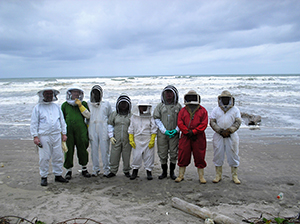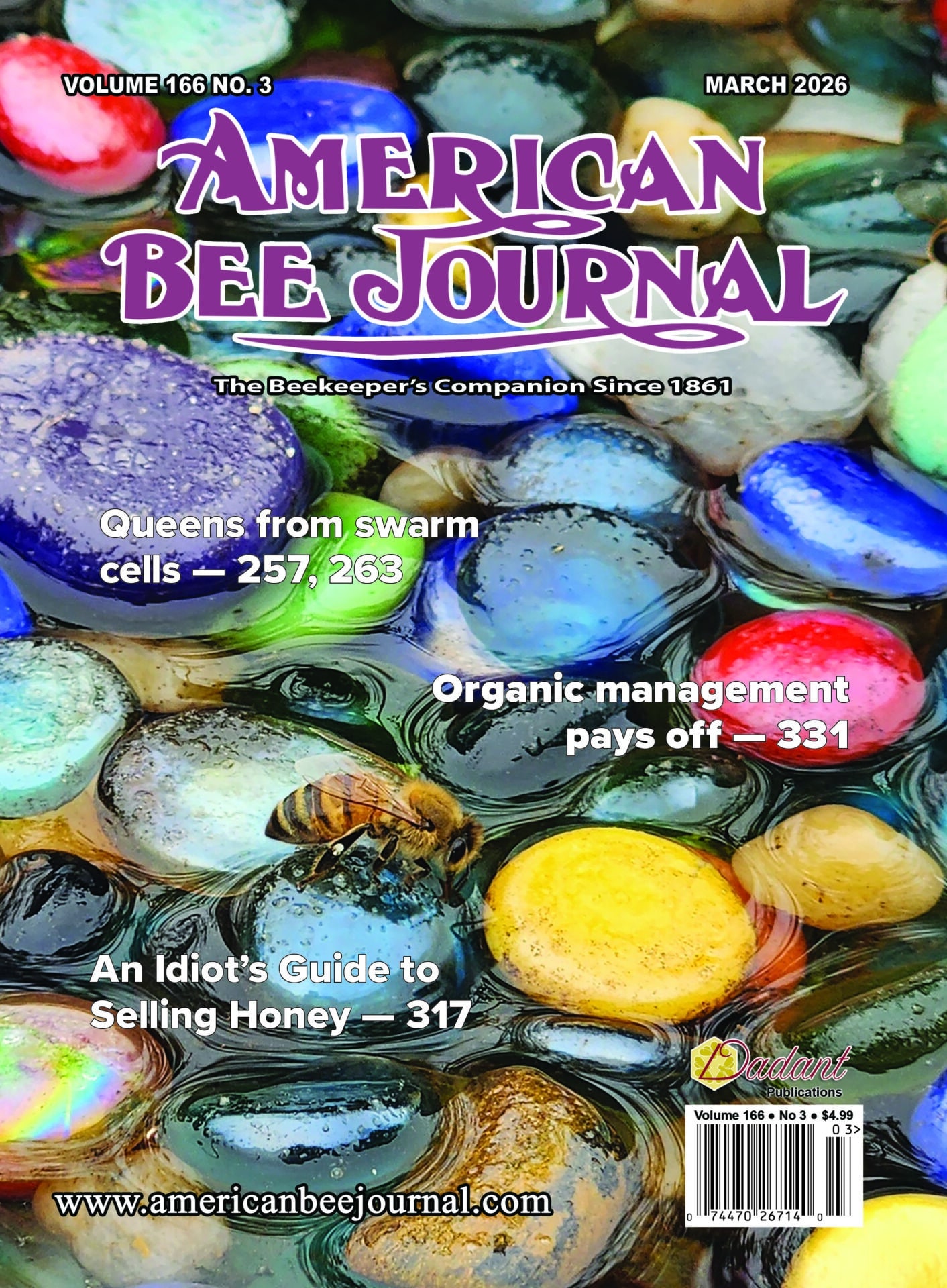
Bees for Development has a long history of sharing its experiences in other countries with some lucky UK beekeepers. In fact, next year will see the twentieth anniversary of our ever-popular ‘Safari’ to the Islands of Trinidad and Tobago, where our host and Trustee Gladstone Solomon introduces holidaymakers to tropical beekeeping with both European and Africanized bees.
In 2018 we decided to organise a beekeepers’ safari to Ethiopia. We have been working in the Amhara region for many years and we have established Bees for Development Ethiopia, an NGO with a proven track record in training young people to become beekeepers, with the objective of alleviating poverty while also preserving and encouraging biodiversity. It is important to understand that peer-to-peer training, delivered in the Amharic language, is one of the keys to the scheme’s success. Bees for Development’s approach is always to build on local skills, everywhere utilising local bees and making equipment with locally-available materials.
When you gather a group of beekeepers, with the common objectives of having a great holiday and a stunning new experience, you have a winning formula. Our group of 18 UK Apitourists was soon sharing both a cultural rollercoaster and a common love of bees. And honey. We had the opportunity to sample honey straight from the comb, and it had a wonderful flavour.
Visiting some of the region’s world-renowned sites like the rock-hewn churches of Lalibela and examining our ‘ancestor’ Lucy in the National Museum of Ethiopia in Addis Ababa formed part of the fascinating holiday. Along the way we met real farmers, and real beekeepers – some of the people who have been trained by BfDE in beehive construction, apiary management and honey harvesting methods. These lovely people were proud to tell us how they had benefited from the carefully delivered skill modules. Some are changing from using local-style hives to the more sophisticated, but more complicated to construct, top-bar hives which give them better yields. We heard how beekeeping activities are in harmony with the local flora and how sustainability is a key concept in Ethiopia. Some local beekeepers explained to our group how they are using the money they have earned from selling honey and beeswax to improve their lives and those of their children. We at Bees for Development know that it is important that our UK beekeepers should witness the impact of our continuing work.
There is a well-established tradition of eating honey in Ethiopia; it is usually crushed comb pushed into any available container. Bees for Development encourages beekeepers to form cooperatives to process and pack their honey better (e.g., in clean, standard jars) or in bulk, and this way they can achieve greater income from better marketing, both locally and further afield, as well as selling to tourists.
Apitourism is a new way of combining bees and beekeeping with travel, witnessing the creation of new employment prospects and economic growth — while exploring some aspects of a country that other, more traditionally-led travellers may well miss altogether. Apitourism offers the host country an opportunity to increase or strengthen local beekeeping — thanks to added support and targeted fundraising.
So, what do lucky UK beekeepers do during the winter months? They go on a Bees for Development Beekeepers’ Safari! We look forward to welcoming more of you soon.
Please see our website www.beesfordevelopment.org or call us now for details of this year’s Safaris: 01600 714848.


